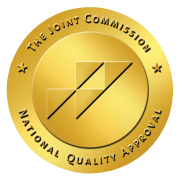Lexapro for Depression: Uses, Side Effects, and How It Can Help You Thrive
The pathway through the forest of depression has many turns and difficulties. Possibly one of the worst is the fog. It blankets everything you see and how you live. Fortunately, there are ways to clear the fog, such as using tools such as counseling, group therapy, and medications. When considering taking Lexapro for depression or anxiety, there are some things to consider. What are the side effects, and what can you expect?
The good news is that Lexapro is effective. Here is what you need to know about taking Lexapro for depression or anxiety.
What Is Lexapro for Depression?
Lexapro is part of a class of medications known as selective serotonin reuptake inhibitors (SSRIs). That is a complex way of saying it affects the neurotransmitter responsible for regulating mood, sleep, appetite, and focus. It helps balance the serotonin in your brain.
Because when serotonin gets low, you will have the hallmark signs of the two most common disorders in America: depression and anxiety.
When your brain creates serotonin, there is typically a pretty decent amount. But for some of us, there is less. It’s just our particular biology. After a certain amount of time of letting the serotonin do its mood-enhancing job, our brains reabsorb it (or store it away).
Lexapro for depression steps in here and keeps the serotonin around.

How Lexapro for Depression Can Help
Lexapro isn’t a cure-all, but it’s a valuable tool for many people managing mental health conditions. Here are some of the ways it can help:
- Reducing Anxiety Symptoms: Lexapro can ease the physical and emotional toll of anxiety, calming racing thoughts and reducing symptoms like a pounding heart or tense muscles.
- Improving Depression: By boosting serotonin effects, it can help restore energy, motivation, and interest in life’s moments.
- Enhancing Sleep: Poor mental health often takes a toll on our sleep. Lexapro may help regulate your internal clock and improve your rest.
- Supporting Overall Mental Wellness: Stabilizing mood and reducing emotional distress can give you the foundation to build healthier habits and relationships.
Lexapro Complementing Therapy
Any understanding of medication for mental health issues or disorders must include the idea that medication alone is not enough. Especially for depression or anxiety, individual counseling makes a world of difference. In fact, it’s where the deeper, lasting change happens.
Treatments like CBT, DBT, ACT, and various others are vital for gaining the tools that will reframe your thoughts and redirect your behaviors. It’s like building a bridge: Lexapro strengthens the foundation while therapy creates the pathway forward.
Part of the beauty of this combination is the simple fact of desire. Lexapro for depression is often enough to take that edge off, to lift the fog blanket so your decision is not overruled by your low serotonin levels.
This can help you choose to engage in your therapy and in your life. Which is transformative.
IOPs and Transitional Housing for Depression
For some, stepping back into “normal life” after a particularly rough patch or just a time of burnout seems overwhelming. This is where an Intensive Outpatient Program (IOP) or transitional housing situation can make a difference.
- Mental Health IOPs: These programs offer a structured environment with therapy sessions, medication management (including Lexapro), and support groups—all while letting you live at home.
- Transitional Housing: If you’re not quite ready for the chaos of everyday life, these supportive environments can give you the breathing room you need to rebuild. At the Lido Wellness House, you have access to all your mental health resources, so you’re not going it alone.
Lexapro Side Effects: What to Expect
No medication comes without its side effects.
- Common side effects: Nausea, headache, dry mouth, or fatigue.
- More serious reactions: Unusual mood changes or heightened anxiety should be discussed with your doctor right away.
- Tapering off safely: Never stop taking Lexapro suddenly; always work with your doctor on a plan.
Open, honest communication with your doctor is your best defense. If something doesn’t feel right, speak up. Adjustments can be made.
You Deserve to Thrive
If Lexapro ends up being part of your mental health strategy, great. If not, that’s okay too. The important thing is finding what works for you.
Medication, therapy, IOPs, transitional housing—these aren’t just tools. They’re lifelines, each one designed to bring you closer to a life that feels full and authentic.
At Lido Wellness Center, we believe in treating the whole person—not just the symptoms. If you’re curious about how Lexapro or other resources might fit into your overall wellness program, reach out. You don’t have to figure this out on your own.
Call Lido Wellness today: 949-541-8466.




